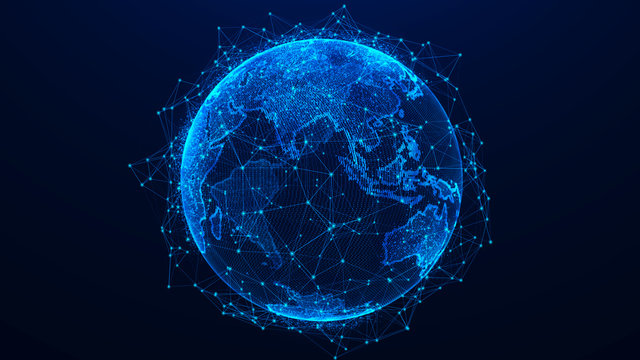Cyber Warfare and Geopolitics: The Digital Battlefield
The 21st century has ushered in a new era of conflict, one where the traditional battlefields of land, sea, and air are complemented, and sometimes even overshadowed, by the digital domain. Cyber warfare has emerged as a potent tool of statecraft, allowing nations to exert influence, disrupt adversaries, and even wage war without firing a single shot. This digital battlefield, where lines of code replace bullets and bytes replace bombs, is reshaping the geopolitical landscape in profound ways.
The Rise of Cyber Power: A New Dimension of Statecraft 💻, Influence in the Digital Age
Cyber power has become an essential component of national security and foreign policy. Nations are investing heavily in developing their cyber capabilities, creating dedicated cyber commands, and establishing offensive and defensive cyber strategies. This new dimension of statecraft allows nations to project power beyond their physical borders, influence public opinion, and even disrupt critical infrastructure.
Cyber Espionage: Stealing Secrets in the Shadows 🕵️♂️, Information as a Weapon
Cyber espionage has become a pervasive threat, with nations targeting each other's government agencies, corporations, and research institutions to steal sensitive information. This digital form of espionage allows nations to gain strategic advantages, acquire intellectual property, and even influence political processes. The theft of data, whether it's classified military secrets or valuable trade secrets, has become a key weapon in the arsenal of modern espionage.
Cyber Attacks: Disrupting and Destabilizing 💥, The Digital Equivalent of Bombs
Cyber attacks can range from simple denial-of-service attacks, which disrupt websites and online services, to sophisticated attacks that target critical infrastructure, such as power grids, financial systems, and communication networks. These attacks can cause widespread disruption, economic damage, and even social unrest. The ability to cripple an adversary's digital infrastructure has become a powerful tool of coercion and disruption.
Information Warfare: Manipulating Minds and Shaping Narratives 📢, The Battle for Public Opinion
Information warfare has become a key component of cyber operations, with nations using social media, propaganda, and disinformation to manipulate public opinion and shape narratives. This digital form of warfare aims to undermine trust in institutions, sow discord among populations, and even influence elections. The ability to control the flow of information has become a critical strategic advantage.
Cyber Deterrence: A Complex and Evolving Challenge 🛡️, Building Digital Defenses
Cyber deterrence is a complex and evolving challenge, with nations struggling to establish clear norms and rules of engagement in the digital domain. The attribution of cyber attacks is often difficult, making it challenging to hold perpetrators accountable. The lack of international consensus on cyber norms has created a gray zone where nations can engage in malicious cyber activities with relative impunity. Building resilient cyber defenses and establishing clear red lines are crucial for deterring cyber aggression.
Cyber Conflict and International Law: Navigating the Gray Zone ⚖️, Establishing Digital Norms
The application of international law to cyber conflict is a complex and contentious issue. Existing international laws, such as the laws of armed conflict, may not fully address the unique characteristics of cyber warfare. There is a need for greater clarity on how international law applies to cyber operations and for the development of new norms and rules to govern state behavior in the digital domain.
The Future of Cyber Warfare: AI, Automation, and Beyond 🤖, The Next Digital Frontier
The future of cyber warfare will likely be shaped by emerging technologies, such as artificial intelligence, automation, and quantum computing. AI-powered systems could enhance cyber defenses, automate attacks, and even develop autonomous cyber weapons. Quantum computing could revolutionize cryptography and break existing encryption methods. The rapid pace of technological advancement poses significant challenges for cybersecurity and requires constant adaptation.
Geopolitical Implications: Reshaping Global Power Dynamics 🌍, A World Transformed
Cyber warfare is reshaping global power dynamics, creating new opportunities and challenges for nations. The ability to conduct cyber operations can provide strategic advantages to both large and small states. The rise of cyber power has also created new vulnerabilities, as nations become increasingly reliant on digital infrastructure. The geopolitical implications of cyber warfare will continue to evolve as technology advances and nations adapt to the changing digital landscape.
How do you think nations should address the challenges of cyber warfare? What international norms and rules should be established? Share your perspectives below! 👇


